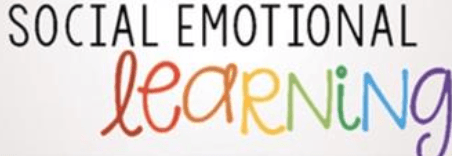Understanding one's feelings, behaviors, and attitudes and how they impact you and others in the workplace will be important to thrive in any workplace environment.
Self-awareness in the workplace is no buzzword; it happens to be a very essential skill in driving personal growth, enriching workplace relationships, and enhancing career success. Understanding one's feelings, behaviors, and attitudes and how they impact you and others in the workplace will be important to thrive in any workplace environment. This article looks at why self-awareness at work matters and offers some practical advice on how to develop it.
What is self-awareness?
It is the capacity to be aware of one's emotions, thoughts, and actions and how all these affect other people: self-awareness. It comprises two components.
Internal Self-Awareness: Recognize your strengths, weaknesses, values and what motivates you.
External Self-Awareness: Recognizing how your actions are perceived by colleagues, clients, and leaders.
Balancing these two aspects empowers the professionals to adapt, grow, and build stronger workplace relationships.
Why is self-awareness important in the workplace?
1. Improves Communication
Self-aware professionals are better communicators. By understanding their own emotions and triggers, they can express themselves clearly and respond to others with empathy, reducing misunderstandings.
2. Reinforces Team Interaction
Self-awareness is thus the respect and the understanding of other people that can help generate a harmonious team culture where productivity thrives.
3. Spurs Effective Leadership
A good leader who has self-awareness inspires confidence. They know their leadership approach and its effect on themselves and the team, and accordingly, they can make it suitable and lead.
4. Enhances Decision-Making
Recognizing personal biases and emotions allows self-aware individuals to make more objective and informed decisions—an invaluable trait in high-pressure professional settings.
5. Promoting Personal Growth
Self-awareness is the basic step for continuous improvement. The process helps professionals recognize their areas for improvement and act to get what they want.
Effective development in self-awareness at workplace
1. Consistent Reflection
Take time to reflect on your workday. Consider what went well, what could have been handled differently, and how your actions impacted others. Journaling or using a reflective app can help capture these insights.
2. Ask Constructive Review
Seek honest feedback from colleagues, managers, or mentors. External self-awareness and the identification of opportunities for improvement can be realized by understanding how others perceive your own actions.
3. Develop Consciousness
Mindfulness techniques are ways through meditation or deep breathing to remain in the moment, staying alert and aware of your emotional self. This can help you better manage stress, maintaining a composure in such challenging situations.
4. Set personal goals for growth
It helps one identify specific skills or behaviors to work on, such as active listening, managing emotional reactions. This gives you a roadmap in achieving clear goals for improving your self-awareness.
5. Observe Your Body Languages
Nonverbal communication is usually an expression of deep feelings. Pay attention to your posture, facial expressions, and gestures, and think about how they may be interpreted by others.
Self-Understanding Problems and How to Solve Them
Overconfidence
Be careful not to overestimate your self-awareness, which can create blind spots; remain humble and open by constantly seeking feedback and practicing self-reflection.
Emotional Blind Spots
Everyone carries around different areas of emotional ignorance and can work in conjunction with triggers through self-regulation to cope with such blind spots.
Resistance to Feedback
But in growth, feedback might be painful. So, use curiosity, not defense, to try to receive it, and then apply it in improving.
Conclusion:
It really does provide individuals with much personal and professional development for careers through improving communication and strengthening relations while facilitating positive leadership. It begins from mindfulness to the attainment of feedback while striving to achieve conscious goals set up to realize who you really are in a world of career professionalism. Get it started now, and just see the changes in both your profession and even career.







